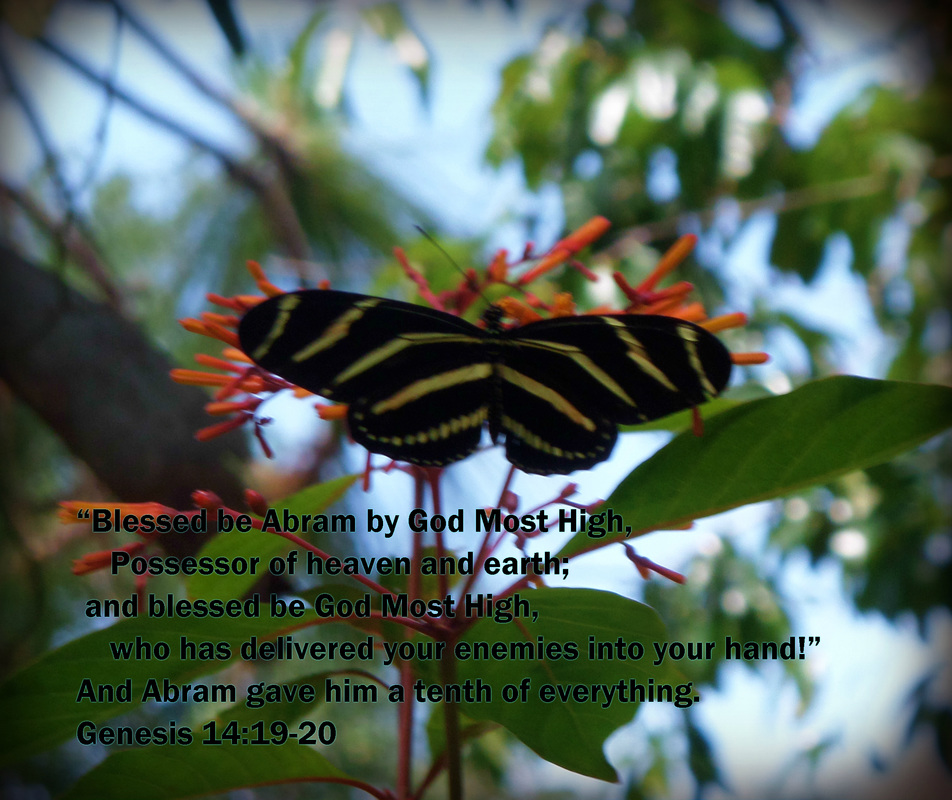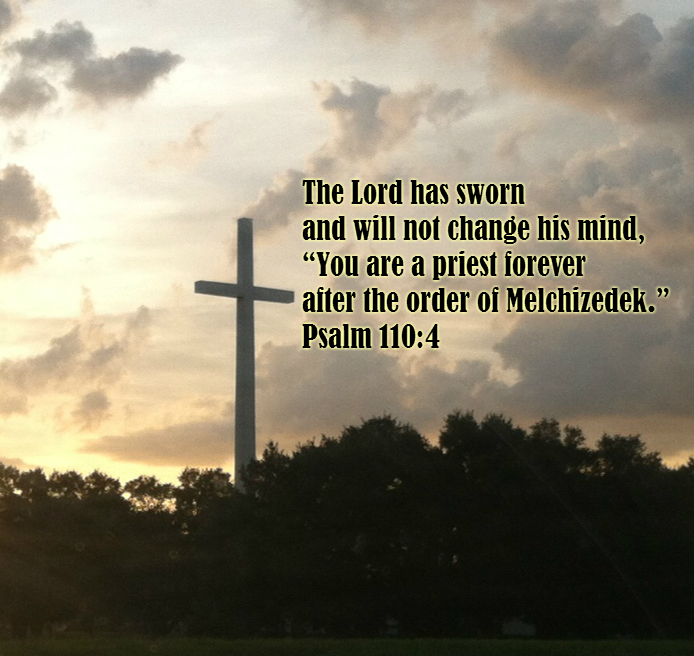There was a massive war taking place in the area where Lot lived in Sodom. Several kings had come together and attacked the countries of other kings. Verses 1-2 list the warring factions,
In the days of Amraphel king of Shinar, Arioch king of Ellasar, Chedorlaomer king of Elam, and Tidal king of Goiim,2 these kings made war with Bera king of Sodom, Birsha king of Gomorrah, Shinab king of Admah, Shemeber king of Zeboiim, and the king of Bela (that is, Zoar)
As the war continued on, the kings of Sodom, Gomorrah, Admah, and Zeboiim decided they had been oppressed for too long and joined forces to fight their enemies as one. Verses 3-12 in The Living Bible describes the long war.
These kings (of Sodom, Gomorrah, Admah, Zeboiim, and Bela) mobilized their armies in Siddim Valley (that is, the valley of the Dead Sea). 4 For twelve years they had all been subject to King Chedorlaomer, but now in the thirteenth year, they rebelled.
5-6 One year later, Chedorlaomer and his allies arrived and the slaughter began. For they were victorious over the following tribes at the places indicated: the Rephaim in Ashteroth-karnaim; the Zuzim in Ham; the Emim in the plain of Kiriathaim; the Horites in Mount Seir, as far as El-paran at the edge of the desert.
7 Then they swung around to Enmishpat (later called Kadesh) and destroyed the Amalekites, and also the Amorites living in Hazazan-tamar.
8-9 But now the other army, that of the kings of Sodom, Gomorrah, Admah, Zeboiim, and Bela (Zoar), unsuccessfully attacked Chedorlaomer and his allies as they were in the Dead Sea Valley (four kings against five).10 As it happened, the valley was full of asphalt pits. And as the army of the kings of Sodom and Gomorrah fled, some slipped into the pits, and the remainder fled to the mountains. 11 Then the victors plundered Sodom and Gomorrah and carried off all their wealth and food, and went on their homeward way, 12 taking with them Lot—Abram’s nephew who lived in Sodom—and all he owned.
The kings of Sodom, Gomorrah and their allies had at first been victorious but when they fought their main oppressor, Chedorlaomer they found themselves losing in the unfamiliar terrain. Some ran away afraid, some fell into pits, others fled to the mountains. Their enemies paid them back by raiding their cities and taking everything and anything they wanted, including people. One of those people was Lot.
But all hope was not lost, one of Lot’s servants escaped and made his way all the way back to Abram. Verses 13-16 describe what happened,
Then one who had escaped came and told Abram the Hebrew, who was living by the oaks of Mamre the Amorite, brother of Eshcol and of Aner. These were allies of Abram.14 When Abram heard that his kinsman had been taken captive, he led forth his trained men, born in his house, 318 of them, and went in pursuit as far as Dan. 15 And he divided his forces against them by night, he and his servants, and defeated them and pursued them to Hobah, north of Damascus. 16 Then he brought back all the possessions, and also brought back his kinsman Lot with his possessions, and the women and the people.
Abram had an army of just over 300 men, I doubt they were much against the armies of Chedorlaomer and his allies but Abram had what they didn’t. He had the Lord guiding him. He divided his men and attacked at night, he not only defeated them but when they ran, he pursued, and he took back everything they stole including Lot. So Abram went to meet the king of Sodom. Verses 17-20 read,
After his return from the defeat of Chedorlaomer and the kings who were with him, the king of Sodom went out to meet him at the Valley of Shaveh (that is, the King's Valley).18 And Melchizedek king of Salem brought out bread and wine. (He was priest of God Most High.) 19 And he blessed him and said,
“Blessed be Abram by God Most High,
Possessor of heaven and earth;
20 and blessed be God Most High,
who has delivered your enemies into your hand!”
Melchizedek was the king of Salem. Salem was probably another name for Jerusalem, a city that existed long before Israel. The world Salem means peace and Jerusalem means abode of peace. Abram and Lot were not the only people on the earth who worshipped God.
Melchizedek, the king of Salem was not only a king but also a priest. He was a priest before Aaron existed, before Levi was born, and before Israel was conceived. He was a special kind of man, unique in the world at the time.
Now Abram had spoken to the Lord on more than occasion, God could easily have given him this blessing without a middle man but He chose not to. He chose to use his priest, his servant king. Sometimes speaking through His servants to one another serves a better purpose. This was one of those occasions.
Melchizedek is seen here as a type of Christ, meaning that he prophetically foreshadowed Jesus Christ. Melchizedek is one of many Christ-types seen in the Bible. It is a phrase we use to describe the revelation of Jesus Christ in the Old Testament. So the King of Salem met Abram to reveal salvation.
His name proclaims Jesus. Melchizedek is a Canaanite name which means My King is God or when conjugated in Hebrew, My King is Righteousness. His title declares Jesus, king of peace. His position the King and Priest, like Jesus. His actions affirm it, Melchizedek took bread and wine. Every Believer hears bread and wine and one thing comes to mind, The Lord’s Supper, Jesus body broken for us, Jesus blood spilled for us to forgive our sins and reconcile us to the Lord. The Jewish people probably would associate the bread and wine with Passover, a feast all about Jesus’ Salvation.
In David’s Messianic Psalm 110:4 he wrote,
The Lord has sworn
and will not change his mind,
“You are a priest forever
after the order of Melchizedek.”
So the Lord send his royal priest to reveal Jesus. He sent Him to bless Abram in front of the King of Sodom to show him that he too could serve the Most High God and know victory and peace. God sent his servant king so that Bera king of Sodom could see Abram’s response. The second half of verse 20 reads,
And Abram gave him a tenth of everything.
Abram had not only taken back Lot, but all of his men and possessions and many other men and all their possessions. A tenth of that was not a little something. It was Abram’s to do with what he chose. But he recognized that Melchizedek was a fellow servant of The LORD and he recognized his position as king and priest put him Melchizedek above him. He honored the king and thanked him for the blessing by giving him a small portion of the loot. Abram recognized The Lord in this man and worshipped God by giving a tithe to Melchizedek. The author of Hebrews describes it in Hebrews 7:1-3,
For this Melchizedek, king of Salem, priest of the Most High God, met Abraham returning from the slaughter of the kings and blessed him,2 and to him Abraham apportioned a tenth part of everything. He is first, by translation of his name, king of righteousness, and then he is also king of Salem, that is, king of peace. 3 He is without father or mother or genealogy, having neither beginning of days nor end of life, but resembling the Son of God he continues a priest forever.
But the king of Sodom didn’t see it as a mere 10%, he didn’t see that Abram still had 90%, he saw it as Abram giving away his stuff, his money, and mostly his power. Bera didn’t see the act of worship, he saw money being exchanged. And though he had no right to any of the money or the men, he pretended that he did. It might once have been his, but it wasn’t now. Verses 21-24 read,
And the king of Sodom said to Abram, “Give me the persons, but take the goods for yourself.” 22 But Abram said to the king of Sodom, “I have lifted my hand to the Lord, God Most High, Possessor of heaven and earth, 23 that I would not take a thread or a sandal strap or anything that is yours, lest you should say, ‘I have made Abram rich.’ 24 I will take nothing but what the young men have eaten, and the share of the men who went with me. Let Aner, Eshcol, and Mamre take their share.”
Melchizedek’s blessing had declared God, God Most High, Possessor of heaven and earth. The blessing had made it clear it was not men or strength which had rescued Sodom’s people, it was God Most High, who had delivered Abram’s enemies into Abram’s hand. When Bera tried to be sly and pretend he was being generous and letting him have the money, Abram said, ‘God Most High is the Possessor of heaven and earth, He’s got it all, including you, me, and all these men. I don’t want any of this money because you need to know it is not you who made me rich, it is not this fight that made me rich; it is God Most High who takes care of me.’ He wanted nothing for himself, he had already been blessed by the Lord. He made sure that the armies who had fought alongside him were taken care of and let Bera keep everything else.
Sodom had a chance to be saved, but the king chose military strength and money over the Lord. Even though all his army’s power and all his money had not been enough to defeat his enemies and even though he had seen the LORD use a tiny army to defeat his enemies, he still couldn’t trust God. He was too busy trusting possessions.
Giving back to the Lord a part of what He gives us is an act of worship, a show of faith, and a testimony to people who are watching us. We can put our faith in our money. We can put our faith in laws and looking righteous or we can put our faith in God. Some people tithe, not because they trust the Lord and want to worship Him but because that is one of the rules they are taught to follow. If we give out of obligation, is it an act of worship? When we worship by giving we are giving our money to God, when we give out of duty we are giving money to men. Although the check may be written to the same institution, God understands where your heart is when you give. He knows if you are giving it to please Him or please man. Hebrews 7:8-10 reads,
In the one case tithes are received by mortal men, but in the other case, by one of whom it is testified that he lives. 9 One might even say that Levi himself, who receives tithes, paid tithes through Abraham, 10 for he was still in the loins of his ancestor when Melchizedek met him.
God loves a cheerful giver (2 Corinthians 9:7). So if you’re going to give, and I hope you are faithful enough to obey Him, then give to cheerfully to please God for the sake of Jesus Christ.



 RSS Feed
RSS Feed
